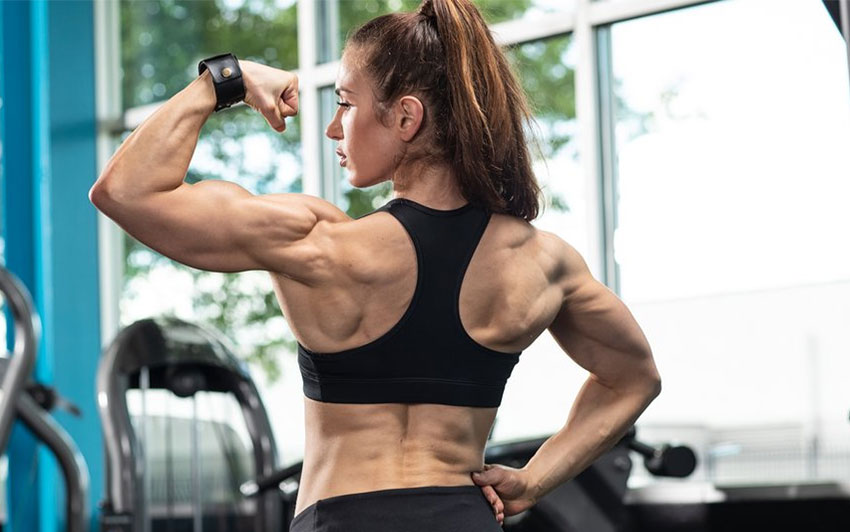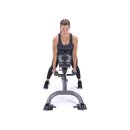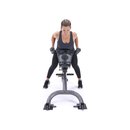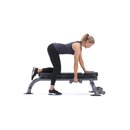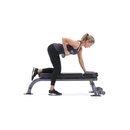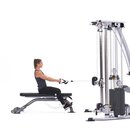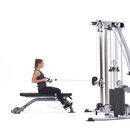The sheer number of exercises included in this back workout may appear intimidating at first glance. Pauline Nordin is well aware that it might elicit this feeling.
"Don't let this workout make you like, 'Oh, it's so many exercises,'" she says. "Because it goes fast. It's going to be done in 40-45 minutes."
Nordin has never been a slave to orthodoxy, as discussed during her recent appearance on the Bodybuilding.com Podcast. But her methods and philosophies have been forged through two decades of hard-nosed training and constant experimentation.
Each exercise in this particular workout calls for 3 sets of 10-12 reps. If you find yourself struggling on any given move, the Fighter Diet founder suggests going lighter. Just don't give up. "You're going to see, when I get fatigued, I still get my reps in."
Nordin advises that you use this program for six weeks at a time. She says: "For example, do this workout every Monday and Thursday for six weeks, and then move over and do strength for six weeks. Then, you can come back to this."
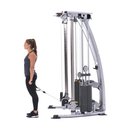
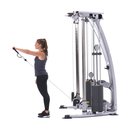
Technique Tips
Dumbbell Incline Row
Nordin likes starting with rows because they train the entire upper back. She also prefers a low incline and lying on the bench for lower back support.
"It's really good to focus on my upper back that way without feeling like I'm getting tired in my lower back," she says.
Wide-Grip Barbell Incline Row
Trade the dumbbells for a barbell. The wider grip will shift the focus to the rhomboids and trapezius between the shoulder blades.
"Small changes, but still, it triggers different muscle fibers," says Nordin.
Focus on keeping your chest on the bench; don't jerk your body or the barbell. It's about working the muscle, not how much you're lifting.
Single-Arm Dumbbell Row
Everyone has their own way of doing this exercise—including Nordin.
"You want to keep your shoulders square and just lift one side up as high as you can," she says. "Pull the dumbbell toward your hip, not toward your shoulder." This direction will tax the lats more than the biceps.
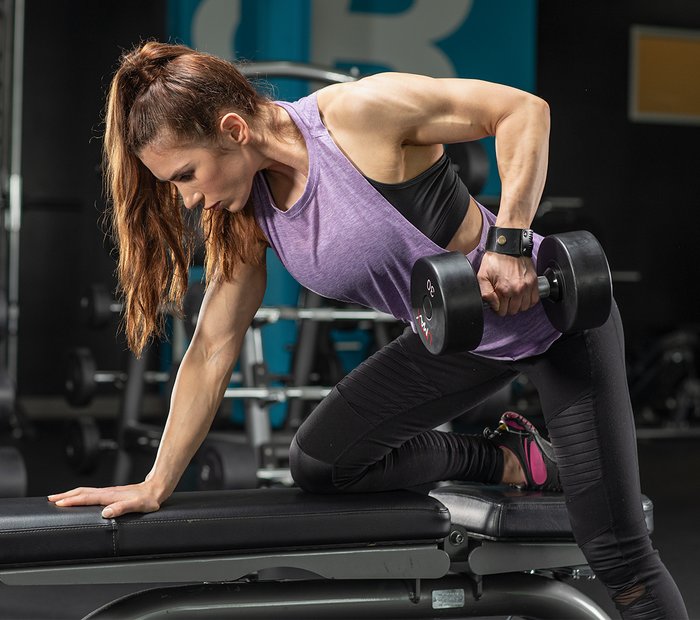
Don't rest between each side. As soon as you finish with one side, start with the other. Then rest.
Superset: Assisted Single-Arm Pull-Up And Assisted Single-Arm Chin-Up
Nordin switches to pull-ups, but she maintains that alternating pattern she did with the previous exercise, doing 10 reps of both grips with one arm before making the switch and repeating with the other.
"Any time you change the grip, your body is like 'wait, wait, wait' and has to change a little bit too, so we stimulate as many muscle fibers as possible," she says.
If you feel one side is weaker, start with it when you have more energy. If you must rest, do so after completing both sides. If you're able to keep going, knock them out. If you feel tired, increase the assistance or spot yourself by pulling with both arms.
Assisted Pull-Up
"We're not done with pull-ups yet," says Nordin. "I love them too much."
Change to a medium grip at this point and do one and a half reps—a full rep followed by a half-rep at the top. That equals one rep. Go back down to the bottom and repeat.
If you feel like you need straps to maintain your grip, use them. Grip is important, but the primary focus is the back.
Superset: Seated Row And Behind-The-Neck Pull-Down
With the seated rows, Nordin tries to lean in a bit to achieve a better contraction when pulling in the handle. She makes sure not to use her lower back to swing or create momentum.
This version of the pull-down is controversial to some who favor doing this move to the front, but Nordin likes it because of how she feels it between her shoulder blades.
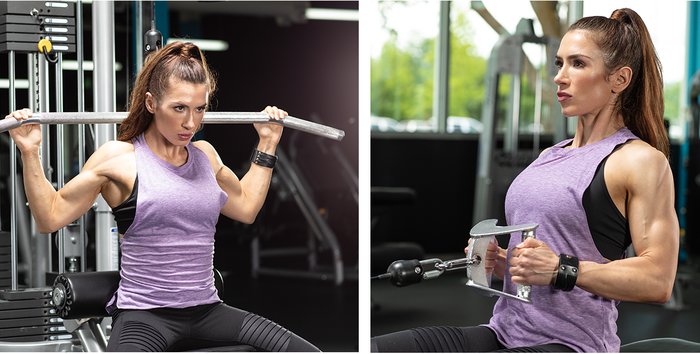
"Just go light first, learn the movement, and pick a weight you know you can do for sure for 15 reps," she says.
While resting between supersets, stretch your back.
Rhomboid Reverse Fly
We're going right back to where we started—the incline bench—but now we're doing reverse flyes to target the rhomboids. Use lighter dumbbells than you did when doing the rows at the beginning of this workout. Occasionally do static holds at the top of the rep to make the set more challenging.
Single-Arm Pull-Down
Nearing the finish line, Nordin wants to focus on detail instead of mass building. Depending on your height and what kind of pulley system you use, you might need to perform these while on your knees in order to achieve full range of motion.
As with the pull-ups earlier, don't rest between left and right. Keep going so you can shave minutes off the time you're in the gym.
If you reach failure earlier than planned, do negatives and assist yourself.
"Eccentrics are when you help yourself down to the position, then slowly release it on the way up," says Nordin.
Don't let your elbow bend and turn this into a push-down. Keep that elbow close to straight but not locked out.
Cable Straight-Bar Front Raise
You might be thinking, "Wait, this is a shoulder exercise." Nordin, however, uses this as a way to train her trapezius muscles. Go with a wider grip and try to perform this move almost like a kettlebell thruster.
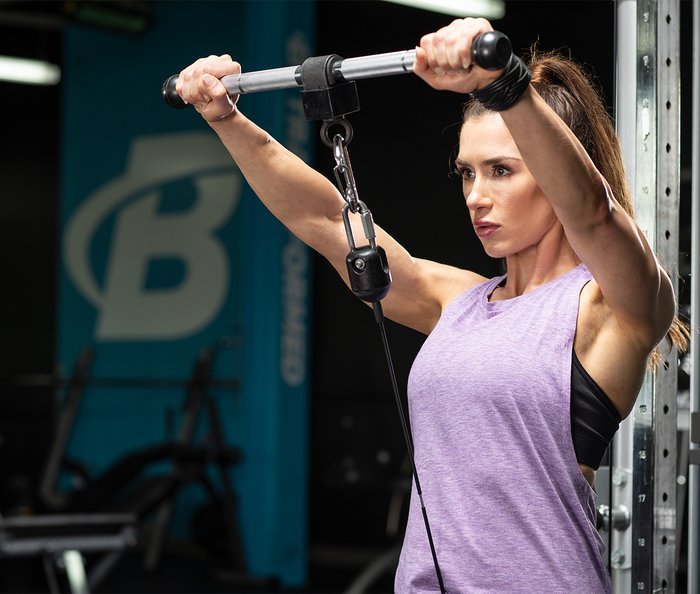
Her overhand grip here minimizes biceps involvement. "I don't want to activate them," she says. "I don't want to strain them."

